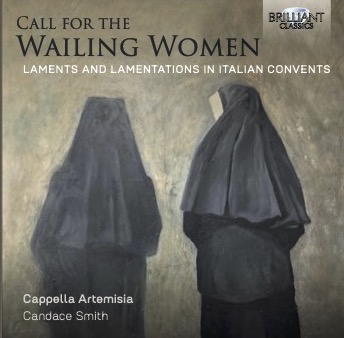
Call for the mourning women, […] that our eyes may run down with tears, and our eyelids gush out with waters. (Jeremiah, 9:17-18)
Call for the Wailing Women
Laments and Lamentations in Italian Convents
Call for the mourning women, […] that our eyes may run down with tears, and our eyelids gush out with waters. (Jeremiah, 9:17-18)
The Lament has been associated with women since time immemorial. From the book of Jeremiah to Ovid’s Heroides to Mediterranean folk traditions, mournful weeping has long been the prerogative of women. Moreover, the lament was a socially acceptable outlet for female eloquence in a society and a Church that instead dictated silence and subjugation.
This recording presents laments and lamentations from 16th- and 17th-century Italy as they might have been heard in that most exclusively female environment: the convent. It includes works composed both by and for cloistered nuns, and features a number of different settings, both monodic and polyphonic, of the very expressive text of the Lamentations of Jeremiah.
This program, featuring nine voices, violin and basso continuo (15 musicians), presents the exquisitely female genre of the lament within the context of the female world of the convent, and it explores though music the many roles open to women’s voices: mother, bride, nun, artist.
(2025 by )
Call for the Wailing Women Laments and Lamentations in Italian Convents Call for the mourning women, [...] that our eyes may run down with tears, and our eyelids gush out with waters. (Jeremiah, 9:17-18) Call for the Wailing Women Laments and Lamentations in Italian Convents Call for the mourning women, [...] that our eyes may [...]